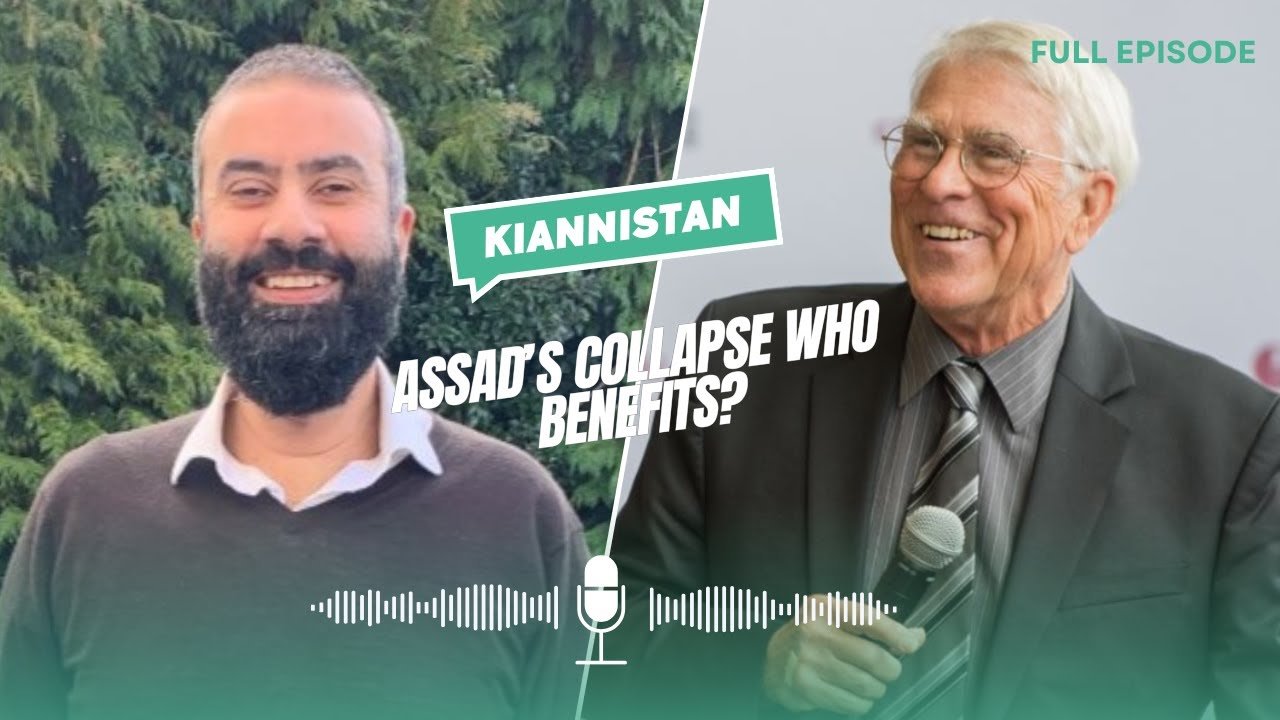Syria’s Future in a Fragmented World – A Deep Dive with Professor Mark Juergensmeyer
In this pivotal episode of Kianistan, I had the honor of speaking with Professor Mark Juergensmeyer—one of the world’s foremost scholars on religion and politics. With decades of experience researching global conflicts, Professor Juergensmeyer brings critical insight into the dramatic collapse of the Assad government in Syria, and the tangled web of international, religious, and authoritarian forces shaping the country’s uncertain future.
🎥 Watch the full interview on YouTube here:
Assad’s Sudden Fall: What Just Happened?
The conversation opens with a stunned reaction to Syria’s political earthquake. Within two weeks—starting November 27th—opposition forces swept through Aleppo, Hama, and eventually Damascus. Assad fled the country, and what many thought would take years happened almost overnight.
As Juergensmeyer notes, this rapid collapse resembled the Taliban’s takeover of Kabul in 2021. The Syrian Army, demoralized and unsupported, simply folded. Russia and Iran—longtime Assad allies—chose not to intervene decisively, citing the Syrian government’s failure to formally request aid.
HTS and the Shape of the New Syria
Now in control, HTS (Hay’at Tahrir al-Sham)—formerly Jabhat al-Nusra—faces a monumental task. While designated a terrorist group by the UN, HTS now claims a more moderate and pragmatic outlook, even promising protection for minorities such as Christians, Alawites, and Druze.
But questions loom: Can a group with deep jihadist roots lead a pluralistic nation? Will it lean more toward Taliban-style governance or something akin to Hamas in Gaza? Juergensmeyer acknowledges the uncertainty but sees signs that HTS, for now, is prioritizing political stability over ideological purity.
Russia, Iran, and the Shifting Regional Power Map
One of the biggest losers, Juergensmeyer argues, is Iran. Assad’s fall cuts Tehran’s “Axis of Resistance” in half, severing its influence across Iraq, Syria, and into Lebanon. Russia, too, suffers a setback. With Ukraine draining its resources, it has little left to defend its Mediterranean foothold in Syria.
Meanwhile, Turkey eyes the north, Israel expands its buffer zone in the south, and the Kurds try to maintain autonomy in the east—with the U.S. still trying to protect them from Turkish aggression. It’s a geopolitical free-for-all.
The Kurdish Dilemma and the ISIS Resurgence Risk
Juergensmeyer expresses concern for Syria’s Kurds. With U.S. support uncertain—especially under a possible second Trump administration—the Kurds face existential threats from Turkey and a resurging ISIS. If American troops withdraw, ISIS detainees could escape, reigniting a violent insurgency.
Kurdish-controlled northern Iraq remains the only safe haven, but it’s already strained by refugees. If things deteriorate further, Kurds may again look to Europe for asylum—especially Germany.
Authoritarianism and Religious Nationalism on the Rise
Zooming out, Juergensmeyer ties Syria’s turmoil into a larger global pattern: the rise of authoritarian nationalism and religion-driven identity politics. From India to the U.S., from China to Turkey, leaders are increasingly using religion and “national purity” to marginalize minorities and consolidate power.
He warns that HTS’s promises of moderation may not hold. Like the Taliban or other authoritarian regimes, Syria’s next chapter could feature strongman rule cloaked in conservative religious values.
The Global Fallout: Palestine, Israel, and Trump’s Return
Assad’s collapse has ripple effects across the region. Palestine loses a crucial ally in Damascus, while Israel grows bolder, expanding settlements and deepening its control of the West Bank. Juergensmeyer fears Trump’s return to office could greenlight even more aggressive moves by Netanyahu.
He also notes the absurdity of a U.S.-designated terrorist like Julani appearing on CNN and being positioned as a national leader. It’s emblematic of a world where alliances shift, ideologies blur, and pragmatism often overrides principle.
Final Thoughts from a Realistic Optimist
Despite his clear-eyed assessment of the dangers ahead, Juergensmeyer ends on a hopeful note. He believes that, in time, global cooperation can emerge from this chaos—especially as existential threats like climate change demand collective action.
But for now, Syria stands at a crossroads. The old authoritarianism has collapsed, and a new one may be forming. Whether the country will heal or fracture further depends not just on Julani or the international community—but on the Syrian people themselves.
🎥 Watch the full episode with Professor Mark Juergensmeyer on YouTube now: [Click Here ]
📌 Don’t forget to like, subscribe, and share to support independent, critical conversations on the future of our world.

